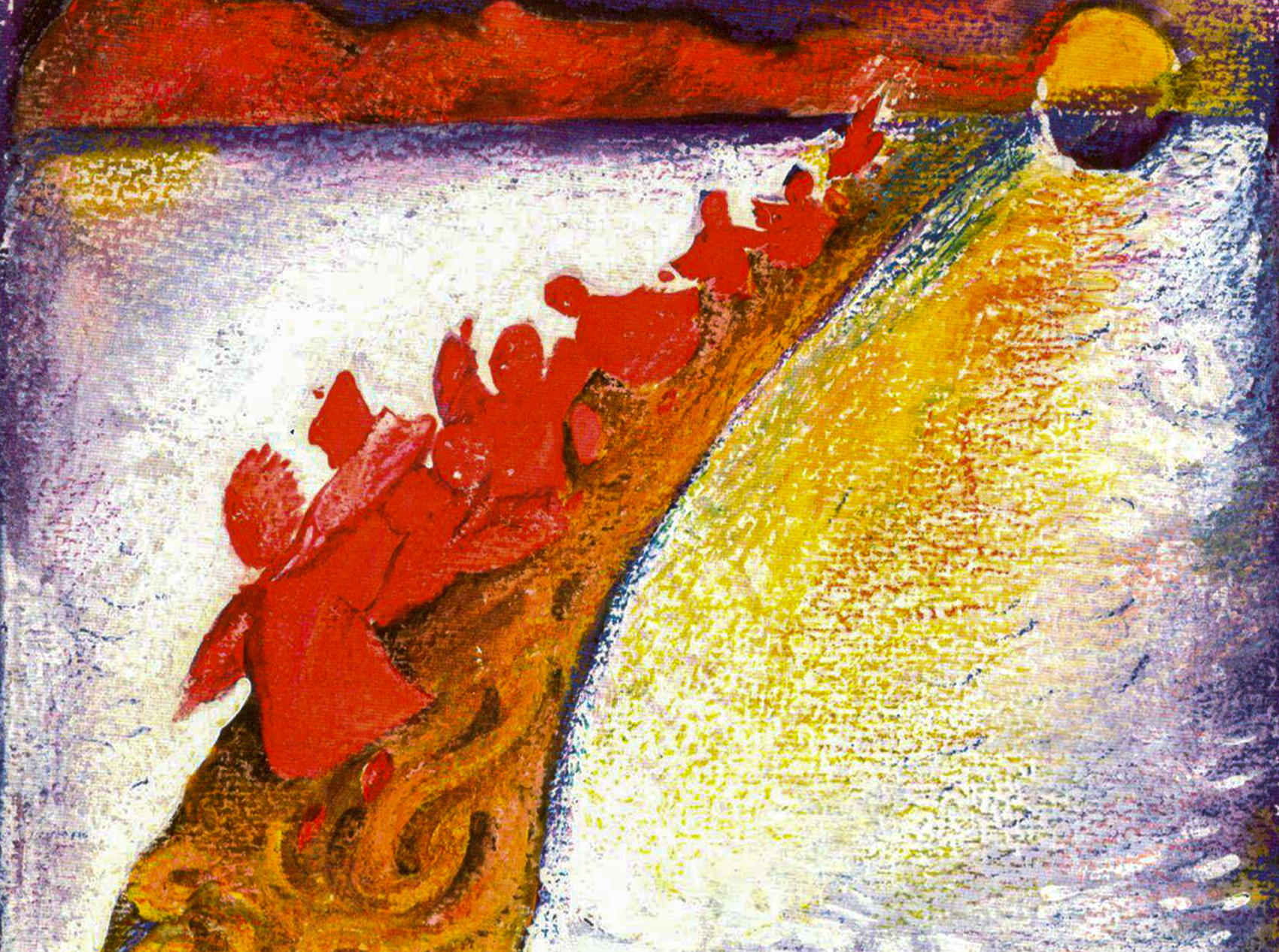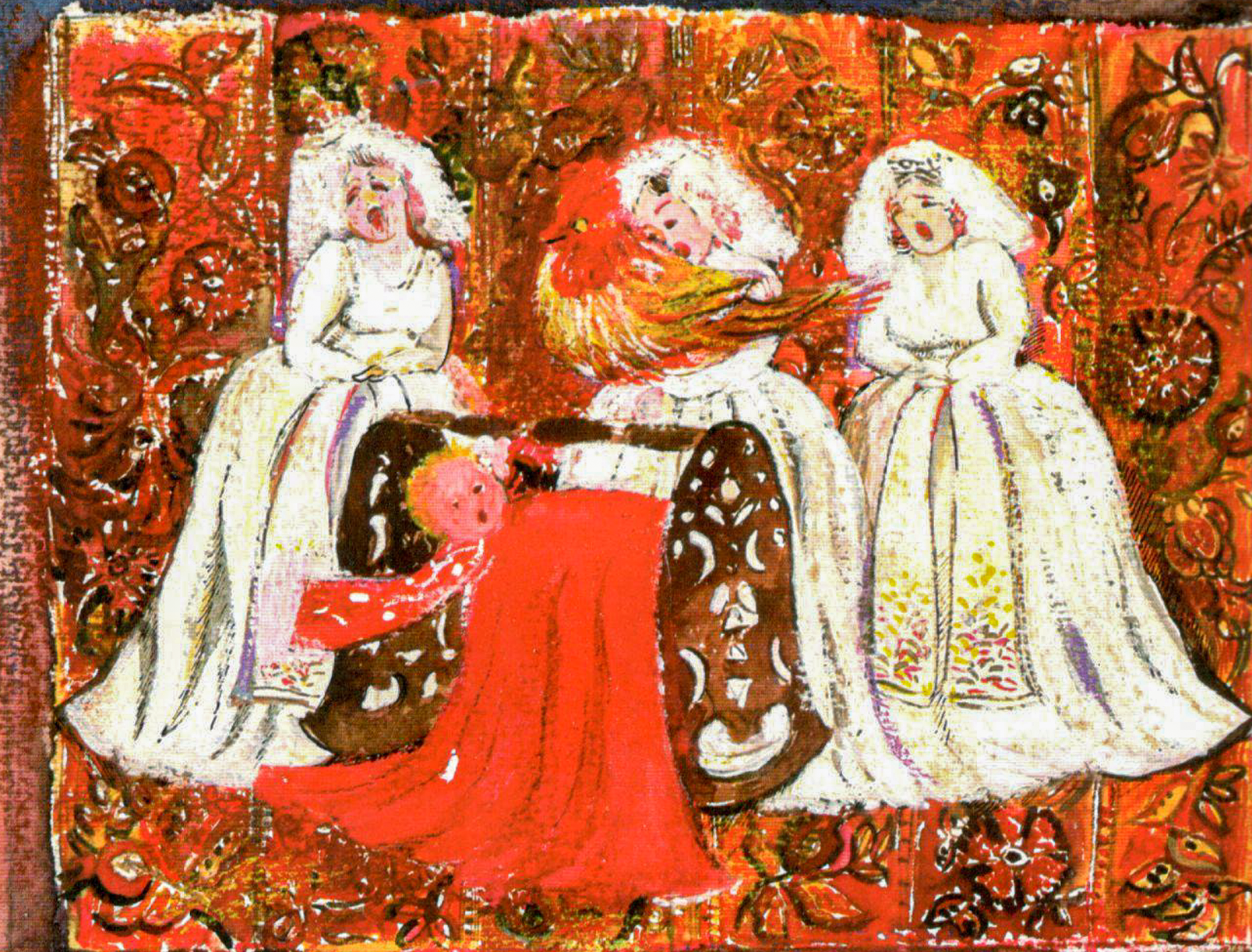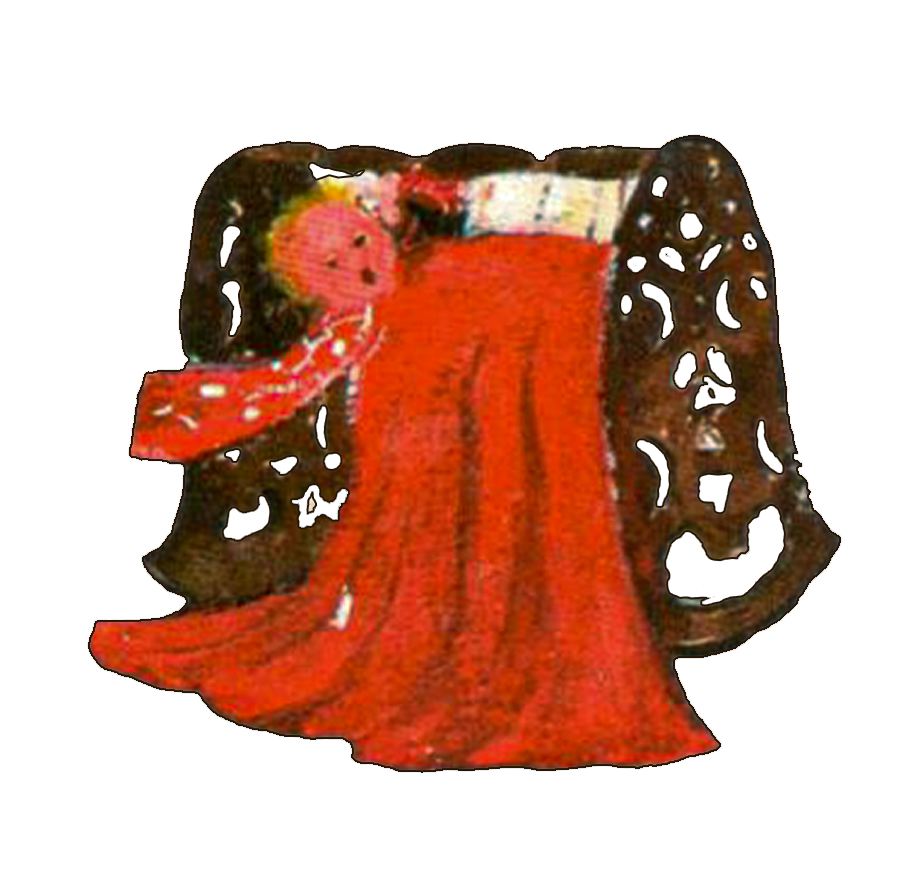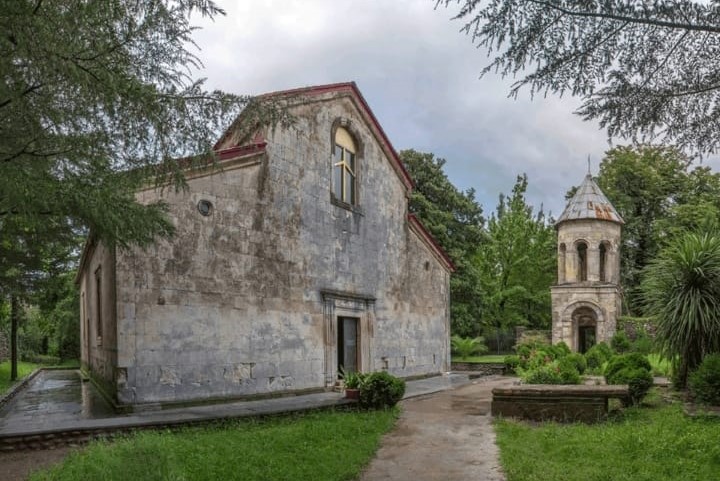“Bat’onebis Nanina”: Traces of the Merciful Era in Georgian Song
Sometimes, the environment and context surrounding a song are no less interesting than the song itself. From this point of view, the song commonly referred to as “Bat’onebi” holds a particularly important the place in the Georgian folk tradition. In this paper, I want to tell you about Bat’onebi.
Who, or what, are the Bat’onebi, and what do we know about these invisible beings, in praise of which so many beautiful songs have been created?
The Bat’onebi are commonly understood to be evil spirits, causing diseases like such diseases as measles, smallpox, whooping cough, etc. Some accounts even claim that the Bat’onebi were the reason for the Black Death. According to folk beliefs, these evil spirits enter the body of a person (often a child) and make them sick. They have their own rules, which they dictate to people. If the family members of the sick person ignore these rules, this angers the Bat’onebi and they “take” the sick person with them—that is, they kill them. The “Bat’onebis Nanina,” a song sung to praise the Bat’onebi, is also a part of the rules..
It is strange that such beautiful and peaceful songs are sung to please these evil, even murderous spirits. It is also strange that the Bat’onebi do not ask for a sacrifice in exchange for sparing the sick. It would be natural for these evil spirits to demand the slaughter of a steer, a sheep, a goat, or at least a chicken, as is the case with many folk rituals. But the Bat’onebi have only one requirement: in the house where they are staying, there should be no fighting and shouting, no one should get drunk, no animal or bird can be slaughtered, and the house should be beautifully decorated. The patient's room should be strewn with lilies and roses —the Bat’onebi’s favorite flowers—and whether the sick person is a guest or a host, care should be taken to create a pleasant environment for them and put them in a good mood. It was for this purpose that the “Bat’onebis Nanina” would be sung.
Nor is there anything in the texts of the songs that would indicate their evil. On the contrary, as one of Batonebi's songs says, "even the birds stand still." This is the mood and main motif of the lyrics. According to these texts, the Bat’onebi are seven brothers and sister, who are seen as the healers, not the causes, of sickness. Moreover, most of the lyrics of “Bat’onebi” songs begin with the address, “Bat’onebo mt’sq’aloblebo” (O merciful Bat’onebi). They are characterized by this very significant word: ts’q’aloba, mercy.
|
Illustration from the book „Mkhiarul-Braziani Batonebi“, Painter – Ketevan Dzidziguri |
Since we have mentioned mercy, before we continue talking about Bat’onebi, it is necessary to consider the value and meaning of two contradictory concepts: mercy and sacrifice. People have been trying for a long time to soften the boundary and juxtaposition between these two words. However, even in the Bible, in which sacrifice is an important topic, it is clearly written, “I do not desire sacrifice, but only mercy.” (Matthew 9:13). The promised land, where streams of honey and rivers of milk flow, is actually a world of mercy: milk and honey should be understood as symbols of mercy, whereas tears and blood are symbols of sacrifice. It is a pity indeed that modern world seems to have decided to present mercy as foolishness, while sacrifice was seen as a necessity, even a virtue.
|
What is mercy? It is a relationship in which all participants are happy. The best example of this is the mother-infant relationship: the mother feeds her baby with her milk, and the baby is happy. And maybe the mother is even happier as a result. The most important thing here is that, in a compassionate relationship, both the recipient and the giver are happy.
The sacrifice relationship, on the other hand is very different. In this case, the strong get whatever they want. They can take away, steal, frighten, kill, rape, and not care at all how much the giver suffers. It is clear that the state, for the existence of which violence is necessary, cannot be based on mercy. Therefore, Hence, being institutionalized, religions or ideologies are based on the sacrifice relationships.. Today we live in a world of sacrifice, while the world of mercy exists only in fairy tales, rituals, and literary creations.
The meaning and context of mercy have been preserved in the ritual of the Bat’onebi. I have witnessed and experienced the power of this mercy. As a child, I spent every summer in the village with my grandmother. Sometimes my brother and cousins were there with me. Once one of my cousins got sick with measles. As soon as the grandmother was sure that the Bat’onebi were present in the house, she gathered all the children and announced the new rules: we were not to fight and scream and we were not to ask for chicken meat, because the chicken could not be slaughtered. We were children and we did not drink, but she still told us that getting drunk was also forbidden. We were to have hope and cheer up the sick.
We obeyed the rules and began to enforce them. The patient’s room was decorated with red fabrics. Every morning, we brought beautiful and fragrant red roses and violet leaves to the patient, since the violets were no longer in bloom. We aimed to please the Bat’onebi. It was an amazing time: because of the Bat’onebi, the house had turned into a “world of mercy.” We were all happy. When the sick cousin recovered, we were very happy, but at the same time, we were saddened that we no longer had to obey the rules of the Bat’onebi. I remember that I even asked my grandmother to leave these rules in place, despite my cousin’s recovery....
Looking back now, it seems amazing to me that in the second half of the twentieth century it was still possible for a person to experience living in a world of mercy. These rules were observed in many families then; perhaps they are still followed somewhere today.
The Bat’onebi ritual, with the rules and songs associated with it, naturally raises the question of who the Bat’onebi really are. Taking into account all of the above, this question needs an answer and explanation.

Illustration from the book „Mkhiarul-Braziani Batonebi“, Painter – Ketevan Dzidziguri
I believe that, once upon a time, there were people living in Georgia who were “outside the law” and lived in communities in inaccessible places. Inaccessible, that is, to the powerful of this country. Their communities were based on principles of mercy. They also possessed the knowledge of curing diseases, sang well, and were gifted with other skills. If someone fell ill, they turned for help to the “Bat’onebi minister” (Bat’onebis msakhuri)—there would be one in every village..
The Bat’onebi minister was a person trusted by the Bat’onebi, who was responsible for mediating between the Bat’onebi and the family of the sick. This person would explain to the family how they should behave and what rules they had to follow, so that the Bat’onebi could visit their house. If the family was worthy, they themselves went to the Bat’onebi and asked them to visit the sick. The Bat’onebi stayed in the house until the sick person recovered. Laws of mercy were established in the house until then, as it was impossible for them to stay there otherwise. They treated the sick, sang to them, taught songs and other acts of kindness to everyone who wanted them. Their presence in the village was very important for everyone: during this time the villagers experienced happiness and tried to follow the rules even after the Bat’onebi left. The power and authority of the Bat’onebi threatened the government, so they were expelled or perhaps destroyed. In their place, people continued to follow their rules; what has survived to this day must be the result of such self-creation and interpretation.
In truth, things may have been different—it is hard to know. But the traces of these rituals that remain to this day really do allow people to live in a world of mercy—that is, to experience happiness—which I think is most important in today’s world of consumerism and sacrifice.
Epilogue:
After thinking about the Bat’onebi like this, I found myselfwishing for something: we should try to organize a “Bat’onebi” week at least once a year. The best time for this is probably late spring, when the violets and roses are in bloom. It would be a feast without meat or drink. By fulfilling the laws of mercy, we would turn this one week into a holiday, when people visit each other, prepare delicious food, eat, sing and make each other happy with gifts—without anyone having to get the measles.
After all, the stage can never be the natural place for “Bat’onebis Nanina”: these songs were created at home, in the family.
Cover image: Illustration from the book „Mkhiarul-Braziani Batonebi“, Painter – Ketevan Dzidziguri



.jpg)

